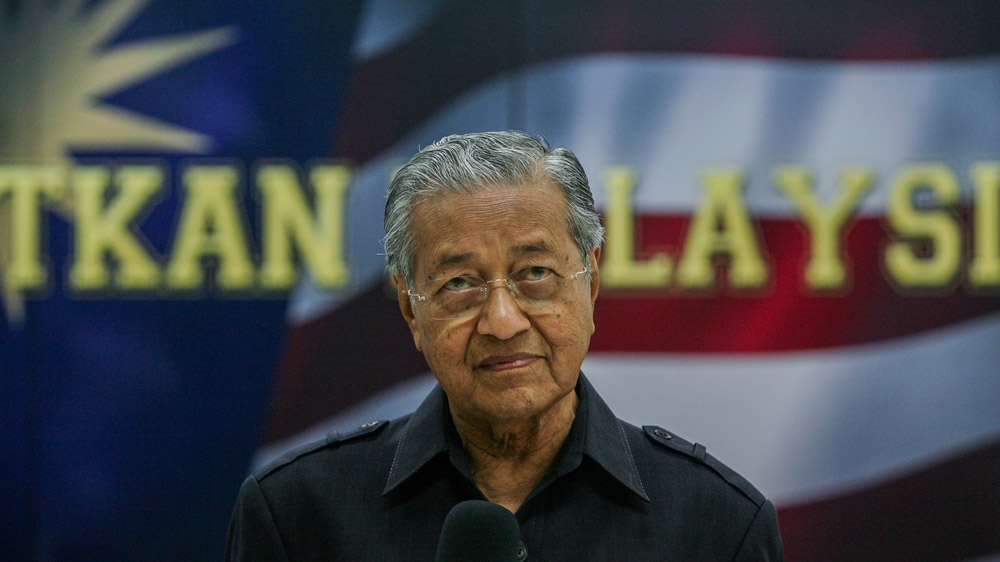Mahathir scores historic win
May 10, 2018 | Expert Insights

Former Malaysian Prime Minister has scored a historic victory in the country`s general election.
The 92-year-old nonagenarian defeated the incumbent BarisanNasional coalition securing 115 seats over the threshold of 112 seats required to form a government.
Background
Malaysia is one of the most vibrant economies in South East Asia. With a population of about 31 million (UN estimate 2018), it consists of Peninsular Malaysia, which is part of the mainland Southeast Asia and the states of Sabah and Sarawak. The majority Muslim ethnic Malay are dominant politically while the Chinese majority holds economic power.
Around the beginning of the 1st century AD, Indian traders began settling in Kedah and along the west coast of the peninsula. Hinduism and Buddhism were introduced during this period. By a series of treaties between 1870 and 1930, the British colonial Administration took control of the foreign affairs of the nine Malay sultanates on the peninsula. Early in 1956, the governments of the Federation of Malaya, and the UK and the Heads of the Malay States agreed that the Federation should achieve independence by the end of August 1957. The Federation of Malaysia came into being on 16th September 1963. Singapore left the Federation by mutual consent and became an independent state in 1965.
Although Malays formed over half the population, in 1970 they accounted for about 1% of national income. A ‘new economic policy’ introduced positive discrimination – in education, civil service, armed services and business – designed to increase the share of the Malay and other bumiputra (sons of the soil) groups to 30% of national income within twenty years. After the parliamentary system was restored, the National Front (BarisanNasional) – a multiethnic alliance led by UMNO – won over two-thirds of seats at all elections of the 1970s, 1980s and 1990s (and this continued into the 2000s). In 1981 Dr Mahathir Mohammad became Prime Minister.
Analysis
The BN, the party of the current Prime Minister Najib and the United Malays National Organization (UMNO) have dominated the Malaysian political narrative since the country won independence from Britain in 1957. Najib won a second term as Prime Minister in 2013 but with a lesser majority. Opponents had then alleged electoral fraud and critics have also repeatedly accused the administration of gerrymandering.
Mr Najib’s main rival was former Prime Minister Dr. Mahathir Mohammed. Dr. Mahathir had ruled the country for two decades and it was during his tenure that Malaysia transformed itself into another Asian economic ‘tiger’. He has been criticized for taking an extremely hard stance against his former deputy Dr. Anwar Ibrahim. Dr. Ibrahim was sacked in 1998 over political differences and later jailed for sodomy and corruption charges, which he has always denied.
Mr. Najib has been in the center of a corruption scandal concerning diversion of funds from 1Malaysian Development Berhad, a sovereign wealth fund set up in 2009 by him. The purpose of this fund was to turn Kuala Lumpur into a financial hub and boost the economy through strategic investment. It is now alleged that around $700 million from the fund was transferred to his personal account. The fund started to attract negative attention in 2015 after it defaulted in paying some of the $11 billion it owed to banks and bondholders.
The US has said that it is moving to seize more than $1 billion in assets ranging from plush properties to a private jet, from people connected to the country’s Prime Minister NajibRazak. According to the Deputy Director of the FBI Andrew McCabe “The Malaysian people were defrauded on an enormous scale.”
In May, Singapore ordered the Swiss bank BSI to shut down for breaking its money-laundering laws in its dealings with 1MDB.
Opposition leader in the parliament, Wan Azizah Ismail, had called upon Mr. Najib to give a full explanation in parliament and proceed on leave until a full probe could take place.
Last year tens of thousands of protestors took to the streets calling for the resignation of the PM. A controversial fake news law was also recently introduced, which critics say could be used by the authorities to muffle dissent. Mr. Mahathir, who was once an integral part of BN and a mentor to Mr Najib, abandoned the coalition in 2016.
Assessment
Our assessment is that the allegation of corruption against Mr. Najib, the rising cost of living, and the decision of the opposition to convince Dr. Mahathir to contest paved way for the defeat of the ruling coalition. We feel that Dr. Mahathir will focus on getting the country back on the rails and work towards curbing the rising cost of living that is upsetting the average Malaysian. We believe that Dr. Mahathir is likely to hand over power to his former protégé Dr. Anwar Ibrahim or another younger leader in the next two to three years.
Read more: Mahathir Mohamad probed for fake news








Comments